AMD's 'Family 26' CPUs for servers will continue to feature a 12-channel memory subsystem.
AMD Begins Zen 5 Prep, Sends First Linux Patches : Read more
AMD Begins Zen 5 Prep, Sends First Linux Patches : Read more
As it stands now, AMD does have the most power efficient architectures. Intel is faster only based on using a ton more energy. This make AMD a better choice for laptops.Is this a true statement from the slide? " AMD will bring leading performance per watt advancing our LEAD on power efficiency in ALL segments"
TSMC 7nm wafer cost $10.000 USDAMD's 'Family 26' CPUs for servers will continue to feature a 12-channel memory subsystem.
AMD Begins Zen 5 Prep, Sends First Linux Patches : Read more
TSMC 7nm wafer cost $10.000 USD
TSMC 5nm wafer cost $16.000 USD but with 1.8x transistor density
so making 7nm IOD is useless since 5nm wafer is 1.6x more expensive but you get 1.8x more transistor, it mean reduced price per transistor, or you get more transistor with same
And making large 32MB L3 cache in 5nm CCD is wasting money since only 1.2x sram area reduction but 1.6x cost than 7nm.

You are talking about a ton more energy so you must be talking about the high end.As it stands now, AMD does have the most power efficient architectures. Intel is faster only based on using a ton more energy.
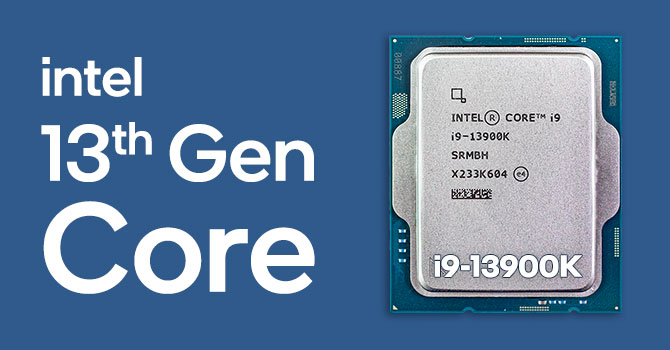
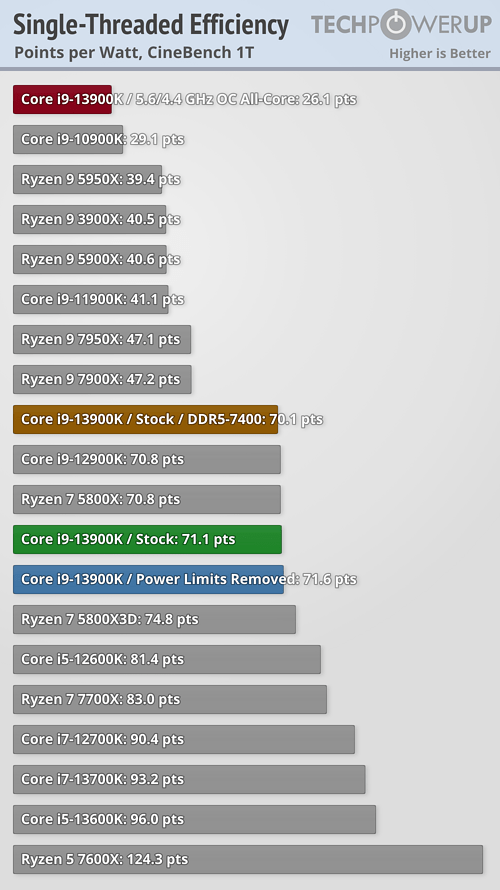
LOL. No. Many reviewers test with stock settings. The e-cores are somewhat less power efficient than the p-cores. That's true. But only at the same clock speed. No one really cares about power efficiency of a single thread in a certain application. Especially not where it matters, e.g. the professional market. Single thread also is more affected by several factors.Higher is better, so intel is about 40% more energy efficient even with power limits removed, the thing that makes the whole intel CPU less efficient are the e-cores and the fact that everybody (reviewers) overclocks the intel CPUs to oblivion.

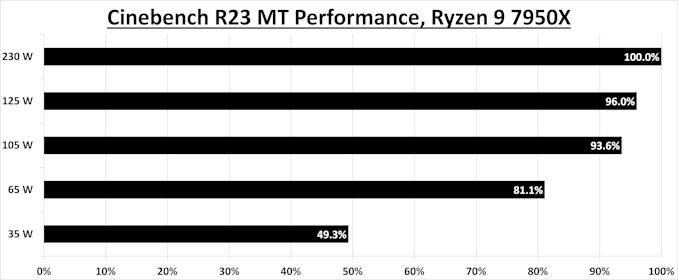
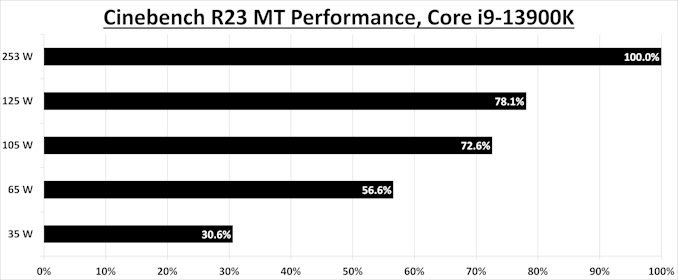
Cherry picking data to defend your precious Intel again I see.You are talking about a ton more energy so you must be talking about the high end.
Higher is better, so intel is about 40% more energy efficient even with power limits removed, the thing that makes the whole intel CPU less efficient are the e-cores and the fact that everybody (reviewers) overclocks the intel CPUs to oblivion.
As you can see the overclocked 13900k is the lowest on the list.
Yes the 7600x is the most efficient one on the list but, just with the overclocked 13900, if you want to make it run faster, closer to the speed of the 7950x ,it will be much less efficient.

Intel Core i9-13900K Review - Power-Hungry Beast
With the Core i9-13900K, Intel delivers impressive performance. Our in-depth review confirms: Raptor Lake is the world's fastest CPU for gaming. Even in applications the processor is able to match AMD's Zen 4 Ryzen 9 7950X flagship. If only power consumption wasn't so high...www.techpowerup.com

AMD is cheating at stating their power draw that's why.Performance of 13900K drops a lot at lower power targets. 7950X is much less prone to lower power targets. It performs almost the same at about half the stock power. It scores over 50% more points at 35W than 13900K in that benchmark. That's why AMD is so far ahead of Intel right now. Especially in professional markets where they benefit more from this advantage.
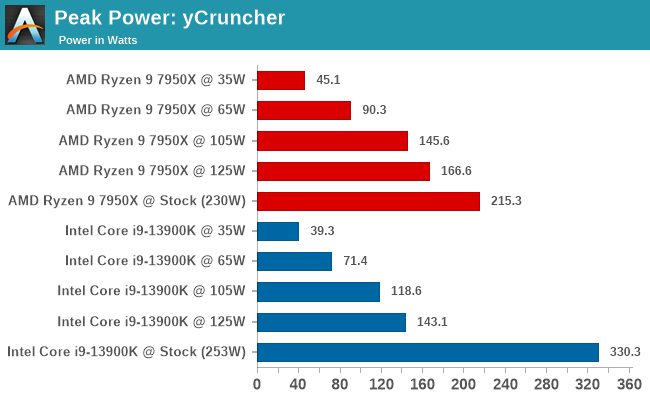
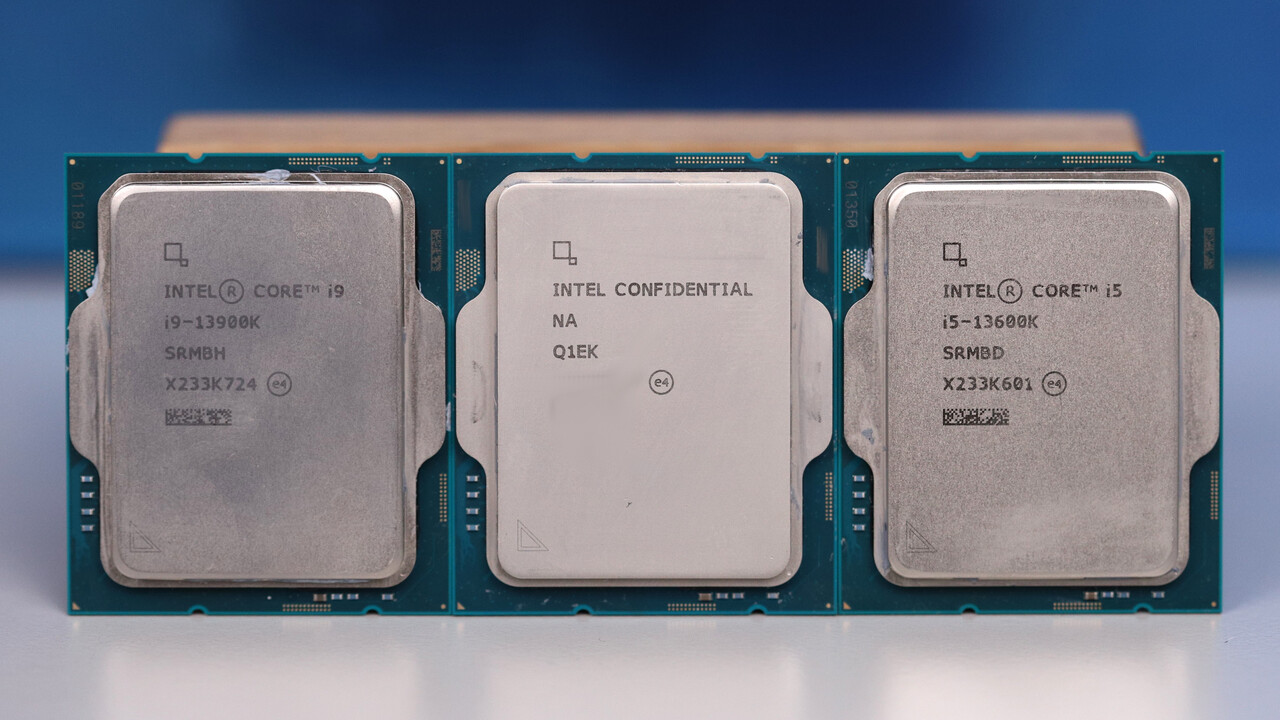


How is that cherry picking in your mind?Cherry picking data to defend your precious Intel again I see.
Color me shocked.
I am really confused by you sometimes. You cherry pick data to make your argument. Then it's easily disprovable by looking at the whole picture from various review sites. And all you do is just kind of get people to prove Intel is trailing.
If you want the fastest Intel is the way to go. But you pay for it multiple ways.

